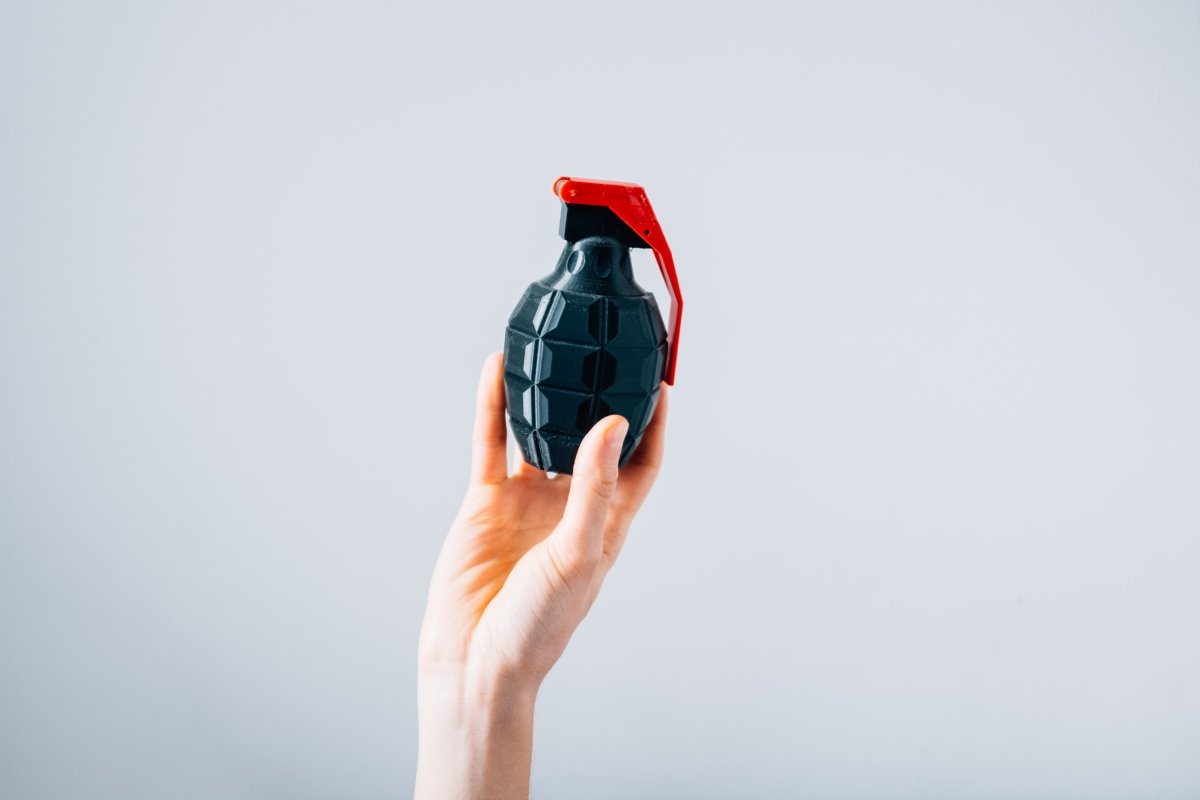We all know plastic pollution is an issue.
But something you might not know? Plant-based plastics are just as harmful, if not worse, than traditional plastic. To some, this is probably confusing to hear. But bioplastics are often greenwashed along with other falsely advertised “green” products.
So next time you’re offered a bioplastic cup or set of plant-based plastic utensils, be sure you know what you’re signing up for.
The Basics of Traditional Plastic Production and Pollution
To understand why bioplastics aren’t an effective solution, you need to understand the production process of plastic.
Plastic is created from petroleum-based materials (aka oil). Why does this matter? Well, petroleum is a non-renewable resource. That means when we run out, we run out – for good. Eco-friendly practices aim to use little to no non-renewable resources.
Because of the decline in fossil fuel use (thank goodness!) for cars and other resources, big oil companies are now shifting their focus to the only reliable market – plastic production. Unfortunately, current consumer patterns are showing promising dependency on plastics.
Aside from creating plastic waste, using this non-renewable resource is highly irresponsible. Plastic production emits over 100 harmful chemicals into the air and water. As you may also know, plastic takes up to 500 years to decompose and leaches chemicals into the ground, contaminating soil, water, and crops. On top of that, tiny plastic pellets produced by these facilities often spill into waterways to be eaten by birds and fish and end up in our food sources.
What Are Bioplastics?
Surely you’ve heard of this “new” alternative plastic that has made its way into the media over the last decade. What you may not know is that it’s not new. It’s actually been around for several years. So what exactly IS bioplastic? Let’s break it down.
Bioplastics, also known as biopolymers, or PHA, are created by chemically altering natural sugars. They’re commonly made from corn, cassava, or sugarcane crops. The catch? Only 20% of the makeup must be plant-derived for it to be deemed a plant-based plastic.
So some of these “eco-friendly” plastics still contain up to 80% petroleum material. That’s hardly eco-friendly.
This new form of plastic has many supposed benefits like:
- Equally durable and function like traditional plastic (but if it acts like plastic, it probably creates pollution like plastic)
- More easily decomposed (they forgot to mention that this is only in a commercial compost with the perfect conditions)
- Less damaging to the environment (unfortunately, this is false information)
Sadly the detrimental impact of their production and lifecycle outweighs these “benefits”. Bioplastics are not the answer to our pollution problem.

Why Bioplastics, Compostable Plastics, and Biodegradable Plastics Are Still Harmful to the Environment.
Bioplastics are often framed as the solution to our plastic problem. But don’t let greenwashing get the best of you. Bioplastics are simply creating different environmental issues than traditional plastic.
Bioplastic Production is Still Wasteful
Plastic production is wasteful and harmful to the environment – regardless of the “type” of plastic. Studies have proven bioplastics to be even more harmful to the environment in many ways. The crops use more land to grow, they’re grown with chemicals, and the finished product releases toxins in landfills. It’s the same story, told a little differently.
Commercial Composting is Required
The commercial composting necessary for plant-based plastics to decompose is not widely available. So what happens?
Yep, you guessed it – bioplastics end up in landfills. Deprived of oxygen, plant-based plastics release methane, a greenhouse gas that is 23 times more potent than carbon dioxide.
Bioplastics Contaminate Traditional Recycling
When bioplastics aren’t appropriately discarded, they can contaminate entire batches of recycled plastic and harm what’s left of the recycling infrastructure. So separate recycling streams are necessary to recycle bioplastics properly.
Even top scientists and owners of bioplastic companies acknowledge this. They know industrial composts and separate recycling would be needed. Bioplastics are difficult to recycle and decompose.
We’re Actually Being Advised to Throw Away Plant-Based Plastics
Yes, seriously. Educated leaders recommend throwing away bioplastics instead of trying to recycle or compost.
“Bioplastics are, theoretically, compostable if collected and buried separately, but, for now, consumers are advised to throw them away together along with general waste.”

What Can Be Done?
There's only one solution to creating less environmental damage with plastic production. We would need to strictly follow green production practices, like using renewable energy instead of fossil fuels.
One study showed that using renewable energy sources would reduce greenhouse gas emissions 50 to 75 percent!
But is this realistic for us? Not any time soon.
Sadly, this is far too complicated to be done quickly enough to halt environmental damage. And reducing it even by 75% wouldn’t be enough. Fossil fuels are one of the biggest enemies of sustainability. It would take years of hard work to stop the use of fossil fuels.
So what’s the answer in the meantime? Eliminate plastic from every area of your life. Incorporate zero waste products and practices into your day-to-day routine.
Zero-Waste Products = The Solution to Plastic Pollution
Let’s not overcomplicate this solution to our plastic problem. The solution is really quite simple. We HAVE to stop using plastic and start using zero-waste products.
Especially single-use plastics.
And while it’d be great if you could go cold turkey on all plastic, it’s okay to start your zero-waste journey in manageable steps. Start small – find a place to focus your efforts – like reducing plastic use and replacing items with zero-waste alternatives.
Reducing your waste is a great place to start. You’ll naturally use less plastic and end up swapping for zero-waste alternatives by focusing on ways to reduce waste.
- Create habits around your waste that become natural – like opting out when given plastic or bioplastic utensils. Keep reusable utensils in your car.
- Create a backyard compost. Have fun with it!
The options for reducing waste are endless.
Zero-waste alternatives leave the environment with room to breathe. If we can take even a little bit of pressure off the environment, we’re doing our part.
How can you do your part?



